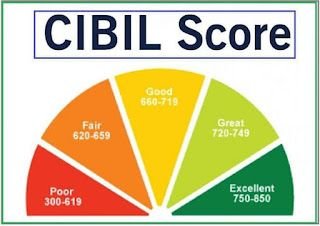A poor CIBIL score in India can create significant challenges when applying for loans. CIBIL (Credit Information Bureau India Limited) scores are one of the most widely used metrics by banks and financial institutions to assess an individual’s creditworthiness. Typically, a score below 650 is considered poor, and many lenders may reject your loan application outright. However, even with a low CIBIL score, there are ways to secure funding. Here are five practical strategies to help you get a loan despite having a bad CIBIL score.
1. Apply for Secured Loans
If your CIBIL score is poor, a secured loan is one of the best ways to access credit. Unlike unsecured loans, which are based solely on your creditworthiness, secured loans require you to pledge collateral, such as property, gold, or fixed deposits. This reduces the lender’s risk and increases your chances of getting approved, even with a bad CIBIL score.
Common secured loans include:
- Home Loans: If you have a property, you can apply for a loan against it.
- Gold Loans: If you own gold jewelry, banks and NBFCs (Non-Banking Financial Companies) in India offer quick loans against gold at relatively lower interest rates.
- Loan Against Fixed Deposits (FDs): If you have an FD in a bank, you can borrow against it without much scrutiny of your CIBIL score.
Since these loans are backed by collateral, lenders are more likely to approve them, even for borrowers with poor credit scores.
2. Consider Peer-to-Peer (P2P) Lending Platforms
P2P lending is gaining popularity in India as a viable option for borrowing money with a low CIBIL score. In this model, you can borrow directly from individuals (lenders) through online platforms. These platforms match borrowers and lenders, bypassing traditional financial institutions.
Some well-known P2P lending platforms in India include Lendbox, Faircent, and LenDenClub. These platforms typically focus on factors like income, employment status, and your ability to repay, rather than relying solely on your CIBIL score. Although the interest rates can be higher than traditional loans, they provide an alternative option for borrowers who might otherwise be rejected by banks.
3. Get a Co-Applicant or Guarantor
One of the most effective ways to get a loan with a bad CIBIL score is to apply with a co-applicant or a guarantor. In India, many banks and NBFCs allow applicants to have a co-applicant for personal loans, home loans, or car loans. A co-applicant is someone who applies with you and shares the responsibility of repaying the loan.
If the co-applicant has a good CIBIL score and solid financial standing, it increases your chances of loan approval. A guarantor is another option; this is someone who promises to repay the loan in case you default. The positive credit history of the co-applicant or guarantor can help offset your low CIBIL score.
4. Approach Lenders Who Specialize in Bad Credit Loans
In India, certain financial institutions cater specifically to individuals with poor credit scores. These lenders understand the unique challenges posed by low CIBIL scores and are often more flexible with their lending criteria.
Non-Banking Financial Companies (NBFCs) are often more lenient than traditional banks. Many NBFCs offer personal loans, home loans, and business loans to borrowers with poor credit histories. Additionally, microfinance institutions (MFIs) and small finance banks (SFBs) may also be more willing to lend to borrowers with low CIBIL scores.
While these loans come with higher interest rates due to the increased risk, they can provide much-needed financial assistance in times of need.
5. Work on Improving Your CIBIL Score
If you have time and can plan ahead, one of the best ways to improve your chances of getting a loan is to focus on improving your CIBIL score. A higher score not only increases your chances of loan approval but also helps you secure better interest rates.
Here are some ways to improve your CIBIL score:
- Pay off outstanding debts: Make sure to clear any overdue bills, credit card payments, and loan EMIs.
- Maintain low credit card balances: Try to keep your credit utilization ratio below 30% to show responsible borrowing behavior.
- Dispute errors on your CIBIL report: Sometimes, mistakes can appear on your credit report, dragging down your score. Check your CIBIL report for any discrepancies and request corrections if needed.
- Ensure timely payments: Consistently paying bills, loans, and credit card dues on time is crucial for improving your score.
Even small improvements in your CIBIL score can significantly impact your ability to secure a loan in the future.

Conclusion
While a bad CIBIL score may make it more challenging to secure a loan in India, it’s not an insurmountable barrier. By exploring secured loans, considering P2P lending, involving a co-applicant or guarantor, and approaching specialized lenders, you can still access the funds you need. Additionally, improving your CIBIL score over time can open doors to better loan options with favorable terms.
However, always keep in mind the terms, conditions, and interest rates associated with loans designed for individuals with poor credit. It is essential to borrow responsibly and ensure that you can meet the repayment obligations to avoid further damage to your credit score.

